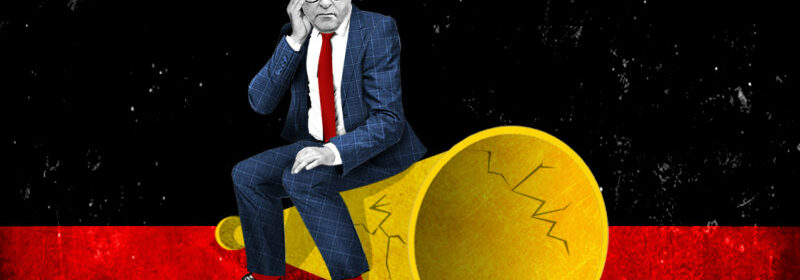Question mark over Albanese’s campaigning chops as Voice push flounders

Save articles for later
Add articles to your saved list and come back to them any time.
Political leaders are programmed not to look back and reflect. But as public support for the No case in the Indigenous Voice referendum coalesces and solidifies, does Anthony Albanese ever wonder if he should have gone about the issue differently?
In his victory speech on election night, he nominated the establishment of the Voice as part of his government’s first order of business. The third sentence of his speech was: “And on behalf of the Australian Labor Party, I commit to the Uluru Statement from the Heart in full.” He returned to the Uluru statement later in the speech, pledging specifically to introduce a Voice to parliament in partnership with the Australian people.
Support for the Voice continues to fall.Credit: Dionne Gain
It was a highly uncharacteristic move. Albanese’s guiding principle since becoming Labor leader in 2019 had been to avoid all risks – think embracing stage three tax cuts and AUKUS, ditching any notion of broader tax reform. In Australian politics one of the greatest risks of all is to put up a referendum: since Federation, voters have shown that they like voting No. Here was a new government that had only just got over the line, with a historically low primary vote, setting out to risk a large chunk of political capital from the outset.
Although Albanese has been an MP for 27 years and a minister for six years, he’s never set out to sell a challenging policy or proposal to the Australian public.
Our prime minister was an effective member of the Rudd and Gillard cabinets, overseeing infrastructure, transport, regional development and local government, but those are largely practical, spending portfolios that rarely attract controversy. It can be said, rightly, that in most cases only prime ministers and treasurers have to truly stick their necks out and advocate for big, difficult ideas. This is Albanese’s first time at it.
But there’s a big question mark attached to his ability as a campaigner. He had two terrible days at the start of last year’s election campaign. On day one he rambled on about patting puppies at the Royal Easter Show and on day two, rather than using his authority to tell reporters he wasn’t a quiz show contestant and to get serious, he went along with the nonsense and embarrassed himself by flubbing an answer about the unemployment rate. It was only when he later caught COVID and Jason Clare – with his energetic, disarming style – took over as the face of the ALP for a few days that the show steadied. And still the victory over the worst prime minister in living memory was wafer-thin.
The stakes are incredibly high. If the Voice proposal fails, who can say how badly relations between most First Nations people and the rest of the country will be damaged? A lot, by my reckoning. After Albanese announced at the Woodford Folk Festival last December that the referendum would be held in 2023, rather than stepping up his advocacy, he went into cruise mode. Opposition Leader Peter Dutton immediately set out to destroy the Yes case and filled the space with misinformation in the guise of “questions”.
Dutton has no qualms about smashing the proposal or the consequences of his actions. His “questions” include how the government would define “Aboriginality” and how the Voice would be accountable. Among his assertions is that there’s no detail, it’s divisive, it’s racist and it’s just another layer of bureaucracy that won’t deliver “real” improvements for Indigenous people. Dutton’s not dog whistling, he’s using a megaphone. He appointed Julian Leeser, a known Voice supporter, as his Indigenous affairs spokesman, and then humiliated his colleague until Leeser could take no more and stepped down. Dutton’s motivation is to diminish Albanese’s standing and make it to the next election.
As things stand, he might well get his wish. The major polls suggest that what Dutton’s doing is working. Public opinion was always going to head in this direction when barely engaged voters were mostly left to their own devices.
Beyond anyone else, the referendum and the Yes case belong to Albanese. In his victory speech, he acknowledged that those who had contributed to the Uluru statement had been patient and gracious. Could they have been persuaded to wait for the Albanese government to introduce the referendum in its second term of office after several years of establishing a sense of inevitability around the proposal? That would also have given the PM and his ministers time to learn how to govern and more effectively influence public opinion.
Like it or not, our civic culture and capacity for community discussion is distressingly thin. Our default setting is to leave it to our politicians to direct public debate.
Big proposals like the Voice are inevitably funnelled through an argument between a prime minister and a leader of the opposition. Right now, the government’s argument for the Yes case at the political level consists of telling us A: what a good feeling we’ll have if we endorse it, and B: what the Voice isn’t.
The political risk for Albanese is that at year’s end, after finally fully devoting himself to the referendum in the vain hope that he can get it over the line, he’s condemned by rising numbers of voters who believe he has treated the burning issues of cost of living and the economy as second-order concerns. That wouldn’t be the future he imagined on election night.
Shaun Carney is a regular columnist.
The Opinion newsletter is a weekly wrap of views that will challenge, champion and inform your own. Sign up here.
Most Viewed in National
From our partners
Source: Read Full Article
